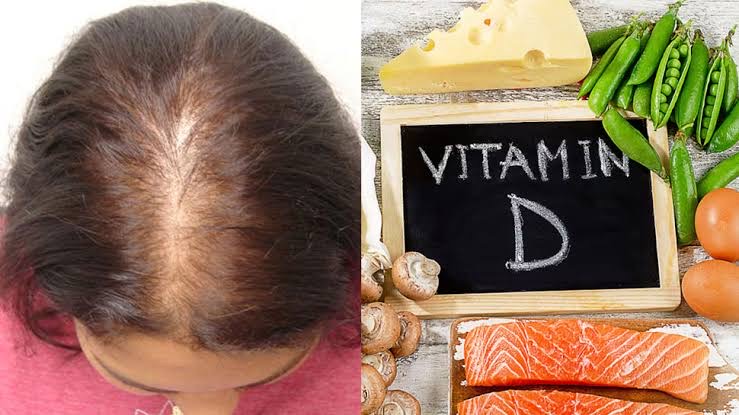Hair fall can be a distressing issue for many, impacting confidence and overall well-being. While multiple factors contribute to hair loss, including genetics, stress, and medical conditions, vitamin D deficiency has emerged as a significant contributor. Known as the “Sunshine Vitamin”, vitamin D plays a crucial role in maintaining hair follicle health, promoting growth, and preventing excessive shedding.
In this article, we explore the intricate link between vitamin D and hair health and how regular testing, such as a Vitamin D test, can help identify deficiencies early.
Role of Vitamin D in Hair Growth
Vitamin D contributes to the life cycle of hair follicles, which are responsible for producing new hair strands. Here’s how it plays an essential role:
• Stimulates Hair Follicles: Vitamin D activates hair follicles, encouraging them to grow and sustain healthy strands.
• Prevents Premature Shedding: Adequate levels of vitamin D prevent hair follicles from entering the “resting phase” too early, reducing hair fall.
• Supports Scalp Health: The vitamin’s anti-inflammatory properties promote a healthy scalp environment, which is crucial for robust hair growth.
Deficiency in vitamin D disrupts this natural process, leading to thinning hair, slow growth, and increased shedding.
Vitamin D Deficiency: A Hidden Cause of Hair Loss
Many individuals are unaware they are deficient in vitamin D until symptoms, including hair fall, become apparent. Here are common causes of deficiency:
• Limited Sun Exposure: Indoor-centric lifestyles and pollution restrict exposure to sunlight, the primary source of vitamin D.
• Poor Diet: Inadequate intake of vitamin D-rich foods like fatty fish, eggs, and fortified products can lead to low levels.
• Health Conditions: Disorders affecting nutrient absorption, such as celiac disease or Crohn’s disease, may result in a deficiency.
For individuals experiencing persistent hair fall, undergoing a Vitamin D test is a proactive step in identifying and addressing the underlying issue.
How to Identify a Vitamin D Deficiency?
Signs of vitamin D deficiency often overlap with other health conditions, but these symptoms may indicate the need for testing:
• Persistent hair fall or thinning.
• Fatigue and muscle weakness.
• Bone pain and frequent infections.
A Vitamin D test price is often affordable, making it a convenient option for those suspecting a deficiency.
Addressing Vitamin D Deficiency to Reduce Hair Fall
Once a deficiency is identified, appropriate measures can help restore vitamin D levels and improve hair health:
• Dietary Adjustments: Incorporate vitamin D-rich foods like salmon, mackerel, egg yolks, and fortified dairy products into your meals.
• Sunlight Exposure: Aim for 15-20 minutes of sun exposure daily, preferably in the morning, to boost natural vitamin D synthesis.
• Supplements: Vitamin D supplements, prescribed by a doctor, can effectively address deficiencies. Ensure you monitor levels through periodic Vitamin D tests to avoid over-supplementation.
Importance of Regular Vitamin D Testing
Routine testing helps monitor vitamin D levels, ensuring they remain within the optimal range for overall health. The Vitamin D test measures both D2 (ergocalciferol) and D3 (cholecalciferol) levels in the bloodstream. The test not only detects deficiencies but also monitors excessive levels that may lead to hypercalcemia.
Preventive Measures for Hair Fall
While addressing vitamin D deficiency is essential, these preventive measures further support hair health:
• Healthy Diet: Include nutrients like biotin, iron, and omega-3 fatty acids alongside vitamin D.
• Gentle Hair Care: Avoid harsh treatments and excessive heat styling. Use mild, nourishing shampoos and conditioners.
• Manage Stress: Incorporate relaxation techniques like yoga and meditation to reduce stress-related hair fall.
• Hydration and Scalp Care: Regularly hydrate and massage the scalp to improve blood flow and follicle health.
When to Seek Medical Advice?
If hair fall persists despite dietary and lifestyle changes, consult a dermatologist or healthcare provider. They may recommend additional tests, including a Vitamin D test, to pinpoint the root cause and suggest targeted treatments.
Conclusion
Vitamin D is a cornerstone of hair health, and its deficiency can significantly contribute to hair fall. Addressing low levels through proper diet, supplements, and sunlight exposure can restore hair growth and reduce shedding. Regular testing, supported by services like Apollo 24|7’s affordable Vitamin D test, ensures proactive health management.
👉 Click here to read the latest Gujarat news on TheLiveAhmedabad.com




